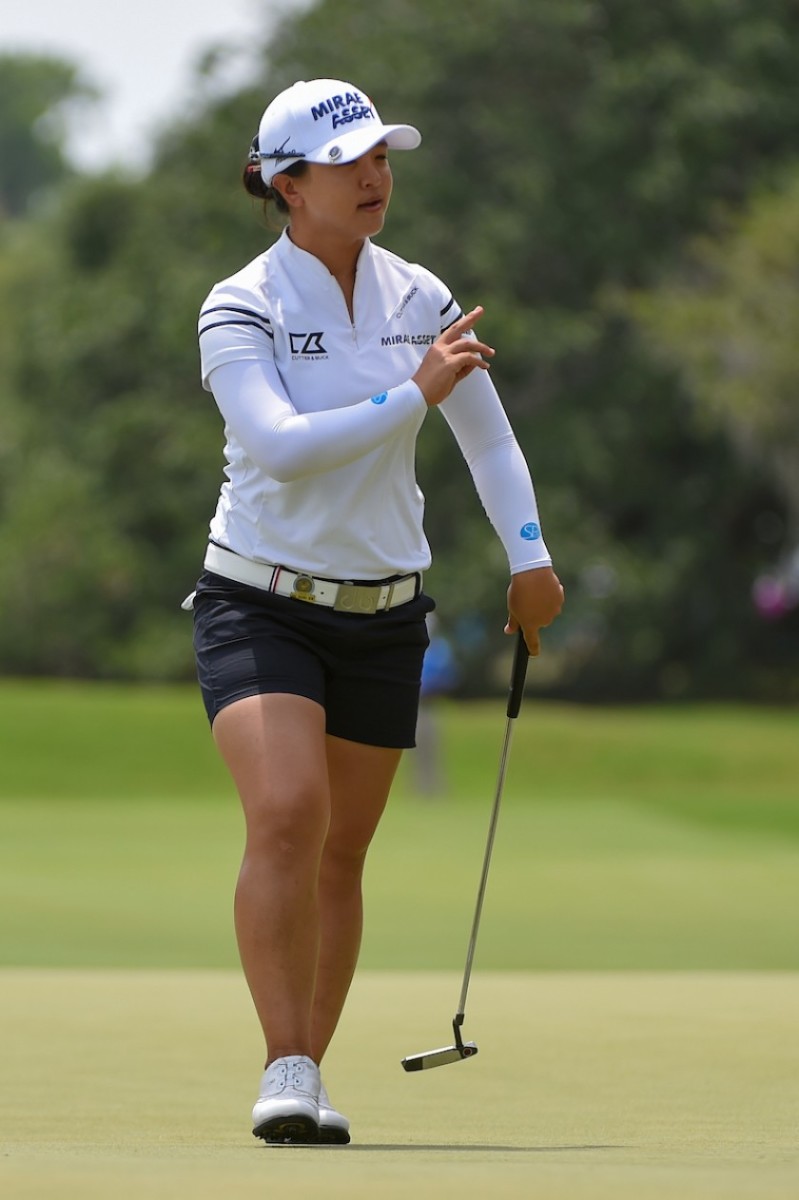LPGA’s ‘Drive On’ shifts into overdrive

The last LPGA event of the season – and the decade – concluded with a long putt for a lot of money on a green in Naples, Fla., on Sunday.
Given the impact on women’s professional golf by players from South Korea in recent years, it was fitting that someone from that country, Sei Young Kim, finished the 2010s in such style, sinking a 25-footer for birdie to win the CME Group Tour Championship and $1.5 million, the largest first prize in women’s-golf history. Kim now has 10 LPGA titles (no majors), but for the 26-year-old who grew up practicing martial arts, this was strong.

The payday was one-tenth the size of Rory McIlroy’s bonus for winning the FedEx Cup, the shiny centerpiece of the PGA Tour, three months ago. The disparity between PGA Tour and LPGA purses wasn’t something those assembled in southwest Florida dwelled upon, given the feel-good vibe of a very lucrative November week and the “life-changing” messaging, yet it sure came up.
And it was voiced most powerfully by the person who has spent the past 10 years at the helm of the LPGA, commissioner Mike Whan, who recently signed a long-term contract extension of undisclosed length. Whan is appealingly self-deprecating – “As I’ve said to our board many times, you’re going to find someone younger, faster and more caffeinated than me, and when you do, just give them the baton,” he said at a news conference – but he has been an energetic bulldog in stabilizing and subsequently expanding the tour.
Whan compares himself to a head coach. Last week, he was critiquing the play-calling of others, specifically corporations that talk a big game about values, equality and fairness – and may live it in some areas of their operation – but fall short when it comes to the sponsorship monies put forth toward supporting women’s sports.
He seems emboldened on this front, not only by his successes but his frustrations at the negotiating table. “It’s called, Live your values,” Whan said. “If you’re going to say something is a value, it has to be involved in everything you do. I’ve had this conversation with a lot of CEOs. Some like it, and some hate it. Don’t call it a value statement unless you’re going to hold that mirror up to everything. You can’t just decide it’s a value and it really works for this employee meeting, but it doesn’t work for this marketing meeting or it doesn’t work for this sponsorship discussion.”
It will be intriguing to see how current or potential sponsors absorb Whan’s challenge, which, like the tour’s “Drive On” promotional campaign, is tied to a push for opportunity that resonates far beyond a golf course.
“Pay gap is going to close in women’s golf, just like it’s going to close in women’s sports,” Whan said. “It’s not going to close because some ad agency comes up with a spreadsheet.… That’s not how social movements happen. It’s going to happen because a couple of people step up and say, ‘You know what? This is the right thing to do. I can afford to do it, and by God, I’m gonna do it.’ ”
Thirty-three official events are on the 2020 LPGA schedule, spread over 12 countries. For the first time, the tour has crossed the $75 million threshold in total purses, and there will be more LPGA golf on TV (500-plus hours) than ever.
Some of the best footage of 2019 came out of a hotel ballroom a week ago, when Jeongeun Lee6 of South Korea accepted the Louise Suggs Rolex Rookie of the Year award with an eloquent and flawless speech not delivered in her native language. “A very special example of the beauty of a global tour,” tweeted Judy Rankin. “Honestly, the very first time she had stood up and tried to speak English. Congratulations! Louise Suggs would have loved this!”
Whan left the season-ending event to travel to Europe, where this week the LPGA and Ladies European Tour announced a joint venture that had been under discussion and needed only a vote by LET membership. The immediate goal is to expand the schedule of the LET, which has struggled for relevance. “We are thrilled to deepen our relationship with the Ladies European Tour in an effort to create the strongest possible women’s tour in Europe,” Whan said.
Women’s professional golf is a much different style of caravan than it was when 13 ambitious golfers founded the LPGA in 1950. You didn’t need a passport, only a driver’s license. “Drive On” was about hoping your sedan made it over a state line so you could sleep at another motor court, speak at another Kiwanis Club and tee it up for very little money. They were building something and, 70 years later, they still are.
